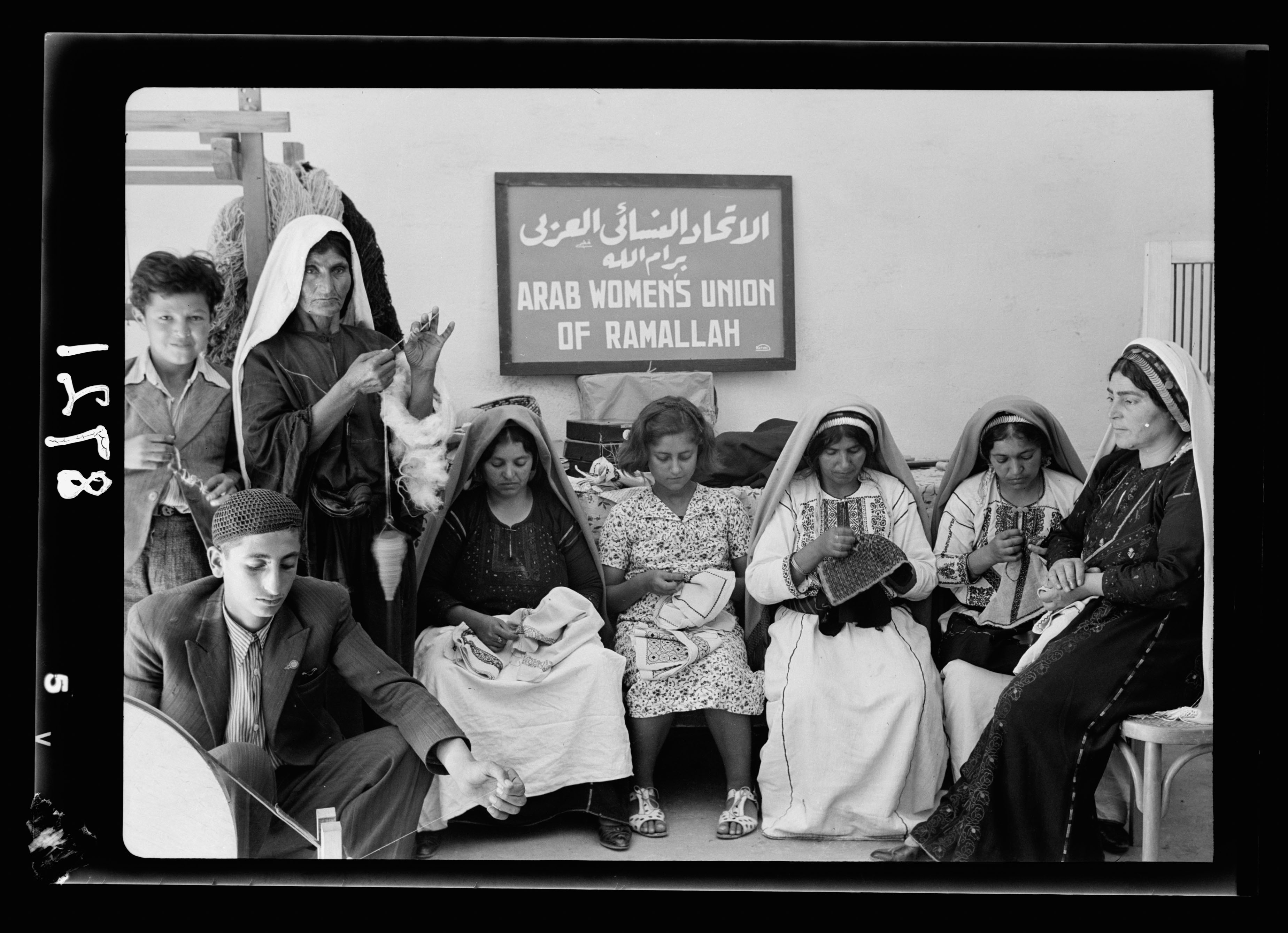Note from the team: In the past few years, many activists, collectives, and organizations have risen to fight for access to sexual and reproductive health services, previously considered as taboo topics in various parts of the world.
Omgyno, a social enterprise that follows a holistic approach to facilitate the provision of menstrual, sexual, and reproductive health to women, has been part of that movement. It believes in education, human-centered design, technology, and safe and progressive care to redesign one’s experience with the most intimate part of their bodies.
Working in Lebanon, Greece, and Portugal, omgyno has collaborated with medical professionals to develop home test kits so that women can take care of their sexual, menstrual, and reproductive health without community or economic limitations. Their platform also provides telemedicine so patients can receive consultations in a safe and private setting.
We got the chance to sit down with four members of their team, and they were able to tell us a bit more about themselves, omgyno, and what it’s currently doing in Lebanon to push against existing patriarchal norms and behaviors.

Photographer Yasmina Hilal is featured in a photo campaign promoting Omgyno home test kits in Lebanon. By offering convenient and reliable testing options, the campaign aims to empower individuals to take control of their health. Photo courtesy of Omgyno.
Can you introduce yourselves to our readers?
Doreen Toutikian: My name is Doreen, and I am the founder and CEO of omgyno. I come from a communications and human-centered design background. During my studies, I focused on research and ethnography, which led to me working in design for social impact.
Rana Cheaito: My name is Rana, and I do Sexual and Reproductive Health and Rights Content and Community for omgyno. I am a feminist researcher and policy analyst with keen interest in reproductive justice through the lens of accessibility.
Livia Bergmeijer: My name is Livia, and I do Content and Community for omgyno. I’ve been in Lebanon for almost eleven years, and my background is in languages. I also co-own Riwaq Beirut, a community-centered space where we [the team] meet sometimes to brainstorm and get together.
Eliannore: My name is Eliannore, and I do the Medical Content and Community for omgyno. I’m currently a medical student, working towards becoming a gynecologist.
Omgyno shared an Instagram post featuring a quote from Sistersong Women of Color and Reproductive Justice Collective reading, “There is no choice where there is no access,” emphasizing the importance of prioritizing and equal access to reproductive healthcare.
How do you think the current medical environment for women in Lebanon affects their sexual and reproductive health?
Rana: The current medical and healthcare system can be characterized as a medical patriarchy. Historically, sexual and reproductive health and support had always been mediated by midwives and community members, but now this role has been overtaken by predominantly male gynecologists. The type of medical care the latter provide is deeply impersonal and lacks forms of care that are essential to sexual and reproductive health.
The medical system in many ways dismisses women: it disregards their pains, their thoughts, and their feelings. So many women have painful and unbearable periods, for example. And yet they are consistently dismissed by many doctors and told that their pain is normal. Women have to go through the process of going from one doctor to another before finally finding someone that believes them and provides them with care.
Livia: Women are essentially being left out of their own right to know what is happening to their body and health. I would argue it is an intentional political and economic tactic, and this happens even more so with marginalized and vulnerable groups in society. There is an active effort to maintain the status quo which does not allow women the agency and autonomy to their own bodies, and as a result, to themselves in society.
Rana: Withholding vital information on health from women maintains the system of dependence that is crucial for medical patriarchy. When we don’t know how our bodies work and how to take care of them, our agency is transferred onto healthcare providers who administer that care on our behalf. More often than not, these healthcare providers do not provide the needed information or care. By regaining that knowledge, we restore our agency over our sexual and reproductive health.
Livia: When you’re actually given information about what your body does, what it can or cannot look like, and how to take care of yourself, you have a sense of agency and you finally feel competent within your own body. This is what omgyno is trying to do.

Doreen, as the founder, can you tell us how the idea for omgyno came into fruition?
Doreen: I come from a family that was quite open-minded, but I realized that no matter how independent I am in taking care of myself with my sexual health, there was no safe space in Lebanon to help me do so. Since then, I had an idea sitting in the back of my mind, wanting to address the lack of appropriate safe sexual health spaces.
When COVID hit in 2020, I saw an opportunity to work on this project, which I had been wanting to launch for so long. I put out a survey and shared it amongst my friends. This survey had a few questions about people’s sexual health, and it suddenly opened up this pandora’s box of huge problems that people were dealing with in Lebanon, where they felt like they had nowhere to go or no one to talk to about their sexual or reproductive health.
I applied to an accelerator program, which our project got accepted to, and we were able to start working on omgyno. We got some funding and won some prizes through MIT, Johnson and Johnson Foundation, and Vodafone Americas Foundation. And then we won first prize at the first FemTech competition in Egypt, which allowed us to properly kickstart the project.
The company itself is based in Greece. People buy the home test kits and other products we offer from our shop here. As people buy test kits in Greece and fund our business, we provide free test kits to individuals in Lebanon. The idea behind this process is to create more equity: as some women can afford and pay for such test kits in certain parts of the world, we use this to fund providing free test kits in other parts of the world where affordable and safe access to such services does not properly exist, such as in Lebanon.

What are the different test kits you provide for self-testing? And what is the process through which people can receive it?
Doreen: We have four different tests we currently provide: a vaginal smear to test for vaginitis, a urinalysis to check for urinary tract infections (UTI), an HPV – cervical cancer screening, and a ‘full package test,’ which tests for sexually transmitted infections (STI). Currently, we are offering the HPV and vaginal smear tests as free kits in Lebanon.
Anyone can order the test kits on our website, through a completely private and secure process. The package has no branding to maintain privacy, and no one besides the customer and the team know what the packages have inside of them. Once the customer receives the package, they perform the test on themselves, and there is a button they can click on the website that initiates the pickup of the kits, which are then taken to a lab. Finally, customers receive their results by email, and are provided with links to telemedicine services with qualified and vetted doctors for further information about their results.
The step-by-step instructional video for Omgyno’s Home Test Kit provides users with a thorough and detailed walkthrough of the process, enhanced by a singalong. Video courtesy of Omgyno.
Eliannore, as someone who is studying to become a doctor, how do you see omgyno fitting into Lebanon?
Eliannore: In medical school, not only do we learn how to diagnose and treat diseases, but we also pay special attention to the ethics of the profession and to our role as caregivers, educators, and advocates for our patients. My experience in the OBGYN departments in Lebanon and abroad opened my eyes to some major gaps in our region, mainly when it comes to educating patients on self-care, and respecting their privacy and autonomy, regardless of their identity or orientation. In this context, I saw omgyno as a first step towards fairer and more accessible sexual and reproductive health services in Lebanon.
Instagram post from Omgyno highlights the strategically placed posters at bars, restaurants, and cafes. These posters provide free coupon codes for HPV and vaginal smear home test kits, urging women to prioritize their well-being.
How have you been able to spread the news of omgyno and the free test kits around Lebanon?
Doreen: We’ve started spreading the news through our personal networks as a start, and through all of our different partners in this project, which include Marsa, The A Project, Haven for Artists, Wish, and Jeyetna.
Individuals are provided with coupon codes to receive the test kits for free, and this allows us to collect data to understand where the news is reaching and what communities are in need of these free test kits.
Livia: And beyond reaching out through these networks, we’re putting flyers up in bars, restaurants, and cafes around town. We’ve seen some sort of a domino effect take place. I have friends who hear about omgyno and then tell me that they have a few people in mind who would benefit from what omgyno is offering, and then they do this with their own friends which keeps a cycle going.
Rana: What we are considering when we are reaching out to people is language. We’re intentional about how we’re putting this information out there. We use both Arabic and English, and focus on easy-to-understand terminology rather than hyper-medicalized words that would do nothing but isolate people instead of inviting them to use these services.
Omgyno offers their community valuable support through a detailed Instagram post, guiding users on how to schedule a free consultation with a gynecologist to address and discuss their test results.
What other services does Omgyno provide, and how do you wish to grow it moving forward?
Doreen: We currently have a femshop through which we promote and sell sustainable products such as menstrual cups, eco pads, and menstrual underwear, and we have the intention to slowly expand to include more wellness and pleasure-based products.
We also want to expand our telemedicine services. We mostly have gynecologists and a couple nutritionists at the moment, but we’re hoping that over time we’ll be able to add sex therapists and mental health specialists to the team. We want to be able to provide women with the holistic care and services that they deserve for their sexual and reproductive health.
End note: To our readers, if you or someone you know in Lebanon is in need of an HPV screening test or a vaginal smear test, you can order them on omgyno’s website, and use code OMGRAWIYA at the checkout to receive them for free. As a reminder, the entire process from start to finish is fully private.
-
Al Rawiya TeamFebruary 19, 2024
-
Al Rawiya TeamFebruary 15, 2024
-
Al Rawiya Team
-
Al Rawiya TeamAugust 4, 2022














